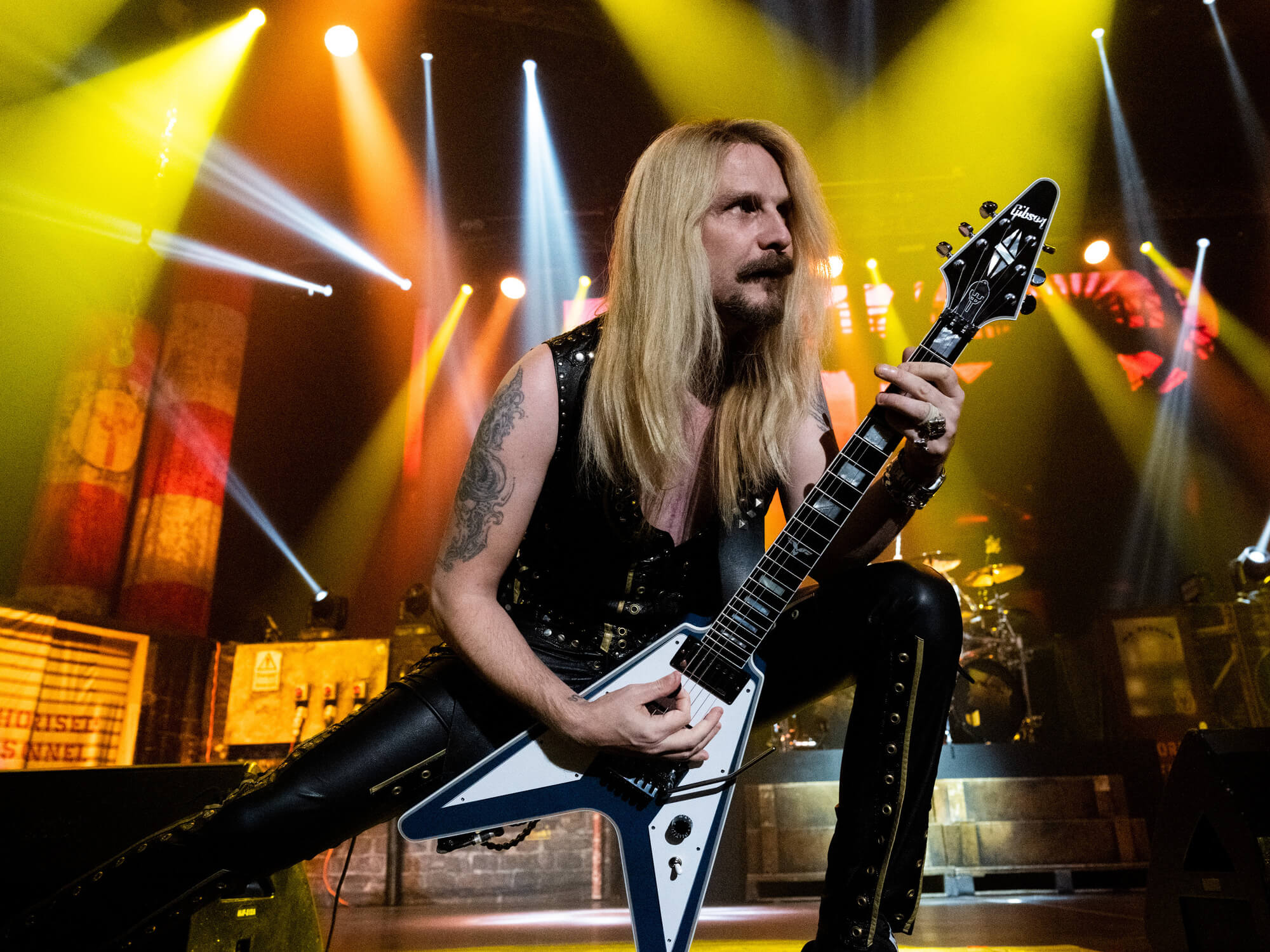Related Tags
“I like it a bit chaotic”: Why Judas Priest’s Richie Faulkner doesn’t use pedalboards
“This is the way forward,” the guitarist says.

Image: Scott Dudelson / Getty Images
Pedalboards aren’t for everyone, and they certainly aren’t for Judas Priest guitarist Richie Faulkner, who prefers his pedals to be “a bit chaotic” instead.
Speaking to Sweetwater about his rig for the band’s live shows, Faulkner reveals that “the only time I’ve ever had a pedalboard is when my tech in Priest made me have one.”
“The reason was, really, because I always used to run batteries,” he says [via Killer Guitar Rigs]. “I didn’t have a power supply. I used to run batteries. You need to pull them off and unscrew them and you couldn’t get them off the pedalboard that easy.”
“So I just left them off the pedalboard. And It’s always been like this. Ever since I’ve been playing in pubs and stuff.”
“It just stays with you,” Faulkner continues. “And sometimes you put them on a pedalboard. For me, it looks a bit… I don’t know – I like it like this. I like it a bit chaotic.”
According to the rocker, it makes more sense to keep things “chaotic” as the pedals just end up taking a different shape after you try arranging them in a straight line.
“You put them out [in a straight line] and then it’s taking on its own shape depending on where it’s natural for them to be,” he says.
“So you see, this is the way to do it, not that pedalboard rubbish. This is the way forward,” Faulkner adds jokingly.
Check out the full interview below.
In other news, Judas Priest touring guitarist Andy Sneap has argued that rock stars today lack the “distance” that “makes them larger than life”.
According to Sneap, the high level of interconnectivity afforded by the internet and social media has, to some extent, diminished the allure of rockstars.
“Rockstars always seemed untouchable back in the day; there was that distance between the fan and [them],” he said on The Flying V Documentary. “You looked up to them. They were like gods, weren’t they? I think that’s important.”
As the musician explains, “It’s not a case of looking down on your fans. I always think that you should do the meet-and-greets, say hello, and be polite, because these people have put you where you are. But I think there has to be that separation to create that image.”
